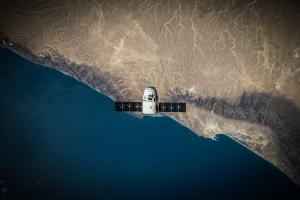Space logistics firm reduces costs and improves visibility with AWS
 D-Orbit is a market-leading space logistics and transportation services firm, having become one of the first companies to meet the need for space logistics when it was founded in 2011. The firm has accelerated the use of cost-effective miniature small satellites (SmallSats) and cube satellites (CubeSats), which are typically launched in clusters for a range of uses, including telecoms and Earth observation.
D-Orbit is a market-leading space logistics and transportation services firm, having become one of the first companies to meet the need for space logistics when it was founded in 2011. The firm has accelerated the use of cost-effective miniature small satellites (SmallSats) and cube satellites (CubeSats), which are typically launched in clusters for a range of uses, including telecoms and Earth observation.
The company aims to constantly improve the services it offers customers, while reducing costs. However, the process of defining mission costs is complex, with satellite operators typically needing to build a ground network or rent time on an antenna from a third party.
In order to tackle this issue, the company developed Aurora, a cloud-based mission control software created in collaboration with Amazon Web Services (AWS) that is fully integrated with AWS. Aurora provides satellite operators with access to a network of satellite ground stations and enables satellite data to be delivered to the cloud.
Aurora allows customers to monitor and control their spacecraft, uplink commands and process satellite data through a standard web browser. Following the completion of its integration with AWS Ground Station, customers can also carry out these tasks and scale their operations without the need to build or manage ground station infrastructure.
D-Orbit's vice president of business development Bruno Carvalho said: “AWS Ground Station integration within our Aurora mission control software is essential to managing and conducting increasingly complex missions for customer payloads on our ION Satellite Carriers. Aurora is fleet or constellation ready, and AWS Ground Station helps D-Orbit to use that capability with global coverage.”
AWS means D-Orbit can provide customers with near real-time access to AWS’ analytics, compute and storage services, using software such as Amazon Kinesis Data Streams and Amazon Simple Storage Service (Amazon S3). AWS Ground Station also means customers only pay for the antenna time they actually use, enabling D-Orbit to control costs.
Looking forward, the company is planning to increase to up to 12 launches by 2023 and offer customers the flexibility to choose their own launch date. It is also looking to incorporate more AWS solutions into Aurora in order to enhance its ability to stream incoming satellite data to other AWS solutions.







